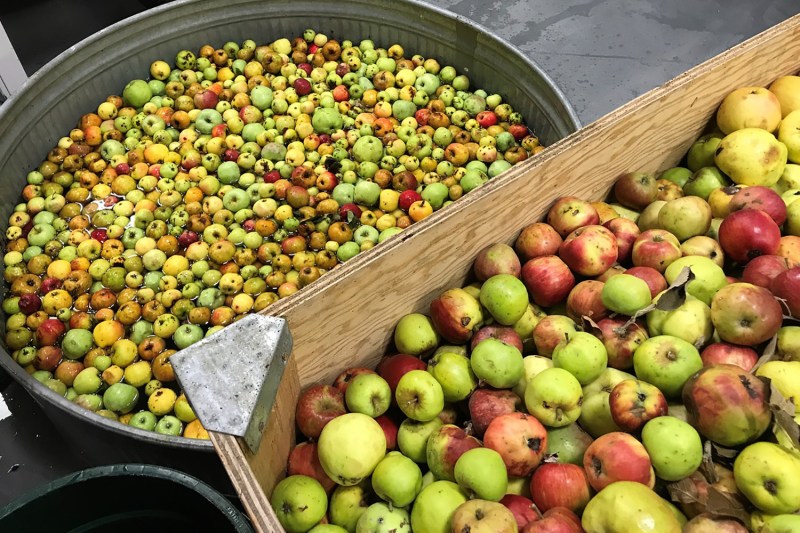Apple season approaches. And with that comes cider, the toast of the coming autumn. With so much bounty to be enjoyed, shouldn’t we be sharing in some of the riches?
Portland Cider Company has launched its community cider program, one that takes advantage of excess or unwanted apples and turns them into cider. Better still, the entirety of the proceeds benefits Hunger Free Oregon, a charity working to nourish those in need. Those who are able get to sip a crisp beverage while those in need get some much-appreciated food on their plates.

It’s one of a growing number of programs throughout the country capitalizing on backyard bumper crops. Through September, the Portland outfit is accepting bushels of apples — as well as other found fruit like plums, berries, and more — in exchange for pint vouchers at their two taprooms. It culminates with an interactive pressing party at the end of September, where donors can engage in the process and enjoy the fresh-pressed fruits of their labor, even cider slushies.
Further Reading
The related charity work takes all shapes and scope within the cider realm. Producers like Salt Lake City’s Mountain West Hard Cider have teamed up with local environmental organizations to help preserve scenic Utah. Two Rivers Cider of Sacramento is known to offer taproom exclusives on certain weekends, with proceeds benefiting area charities. And Idaho’s Meriwether Cider Company throws an annual soiree similar to that of Portland Cider Company, incorporating local apples from folks’ yards in the name of noble area advocacy groups like Treasure Valley Food Coalition.
The sheer number of fruit-bearing trees and shrubs on public property is impressive and often overlooked. Falling Fruit has mapped the accessible bounty for several years now. The especially urban project collaboratively locates natural produce flourishing in neighborhoods all over the planet. Part GIS and part Reddit for foragers, Falling Fruit has already mapped some 2,700 types of edibles over more than 1,400,000 specific locations. It’s an incredibly democratic open-source treasure map for the masses.

The giving back element extends beyond the booze industry into the more obvious social and agricultural realms—and quite often in intriguing forms. City Fruit in Seattle is a great example, an organization launched in 2008 to holistically manage the many urban fruit trees of the metro area. Not only do they use what would otherwise rot on the branch or sidewalk, City Fruit also educates on how to best share and preserve the yields.
Last year, the group harvested nearly 50,000 pounds of fruit. The bounty was gathered by more than 900 volunteers and shared among area youth and 29 community organizations.
As your backyard fruit tree explodes like popcorn with another beautiful crop, consider ways to utilize every last offering. If you’re savvy, you’ll get a drink or two out of your efforts.


